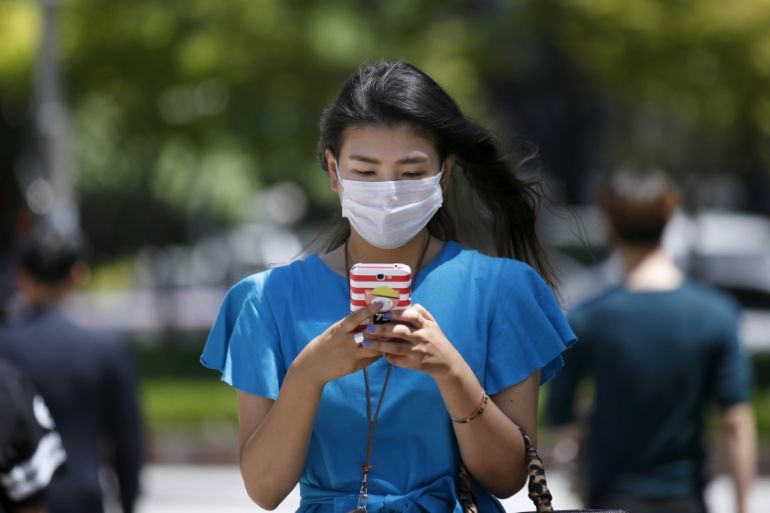S Korea shuts nearly 2,000 schools as MERS cases soar
With 87 cases confirmed, South Korea now has the largest number of infected after Saudi Arabia.

South Korean authorities have ordered nearly 2,000 schools closed nationwide to prevent the spread of Middle East Respiratory Syndrome (MERS).
The health ministry on Monday reported 23 new infections, bringing the total to 87. Six people have so far died in the outbreak, as the government looks for ways to contain the spread.
Keep reading
list of 4 itemsFirst pig kidney in a human: Is this the future of transplants?
Why are some countries decriminalising drugs?
‘No good evidence’ for gender care for youth over long-term, review finds
Jeong Eun-Kyeong from the Centre for Disease Control and Prevention told Al Jazeera that the government is trying to monitor people suspected of being infected after reports that some people were ignoring instructions to isolate themselves.
“We did cellphone tracking in a couple of cases. For those we need to find we will request location tracking and get the data,” Jeong said.
We think we have a chance at putting the outbreak under total control.
South Korea now has the second highest number of infections in the world after Saudi Arabia, according to statistics from the European Centre for Disease Prevention and Control.
Reflecting public concern among parents, 1,869 schools across the country are due to be closed on Monday, the education ministry said.
The government, under criticism for a lack of transparency and failing to respond swiftly to the outbreak, also said it would track people who may have been in contact with patients through their mobile phones.
Home quarantine
Over 2,300 people were under quarantine as of Sunday, some in healthcare facilities but most at home.
Deputy Prime Minister Choi Kyung-hwan said there was no reason to believe that the virus would significantly spread further in the country.
“So far, all the MERS cases have been hospital-associated, and there has been no case of an infection in other social settings. We think we have a chance at putting the outbreak under total control,” Choi said.
Al Jazeera’s Harry Fawcett, reporting from Seoul, said that while cases were limited to hospital environments, there was increasing public fear that the disease would spread.
“More than 1800 schools are shut, public events have been cancelled, and many people are avoiding crowded areas…It all reflects growing concern as the number of cases grows each day,” Fawcett said.
The latest MERS patient to die was an 80-year-old man, who tested positive for the virus last week while being treated for pneumonia.
The virus has no vaccine, and health experts say it spreads through close contact with infected people and not through the air.
MERS was discovered in 2012 and has mostly been centred in Saudi Arabia. It belongs to the family of coronaviruses that includes the common cold and SARS, and can cause fever, breathing problems, pneumonia and kidney failure. The virus has spread primarily through contact with camels.
South Korea’s first patient returned from Saudi Arabia in early May, officials have said.
South Korea’s new cases bring the total globally to 1,236, based on World Health Organization (WHO) data, with at least 445 related deaths.